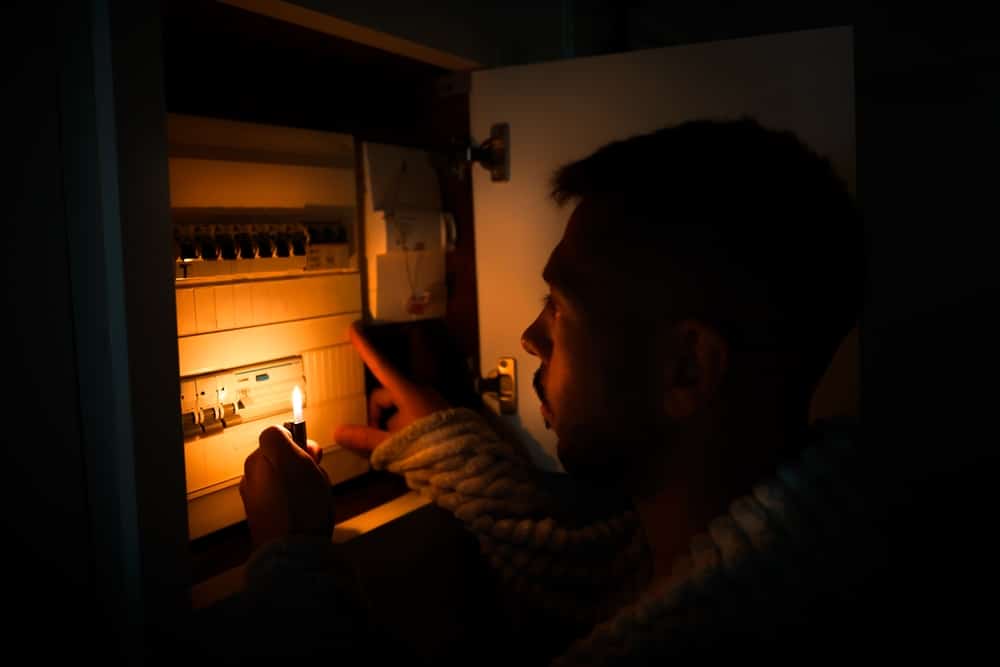The UK has been warned that it could face blackouts early next year amidst fears of reduced gas imports as the cost of living crisis rages on.
It comes after the National Grid’s Electricity System Operator (ESO) issued a report that details what would happen in the unlikely scenario that the country’s electricity supply was interrupted and temporary blackouts were imposed.
In this article, we’ll outline what blackouts are and what you can do to prepare if emergency power outages are announced.
What are blackouts?
Blackouts are large-scale power outages that occur due to a failure in the power grid.
They usually happen due to an imbalance between power generation and consumption but can also be planned in advance by energy companies to prevent large-scale blackouts, such is the case in this instance.
The aim of organised blackouts is to plunge certain areas into darkness for limited periods at a time in a bid to ease the strain on the power grid in an emergency situation when there is a shortage of gas.
The last planned UK-wide blackout took place from January to March 1974 under measures that became known as the ‘three-day week’ when homes and businesses were urged not to use more than three days worth of energy in a week.
Will there be blackouts?
National Grid CEO Jon Pettigrew said that, whilst blackouts remain a “worst-case scenario” and would only be implemented as a last resort, there is a plan in place in the event that gas supplies deplete and such drastic measures are needed.
“There could be energy shortfalls in the UK and we will manage that very carefully”, he said. “This isn’t a time for people to panic.”
UK government documents that were created before the cost of living crisis have also been unearthed that detail the steps that would be taken if there was a need for scheduled blackouts in the coming months.
The plans are split into several stages depending on the severity of the shortage and include calls to the public to reduce their energy consumption, restrictions on businesses energy usage and, as a last resort, scheduled power outages.
When will the blackouts happen?
The National Grid have confirmed that, if blackouts are needed, they will more than likely take place during the coldest days in January and February 2023 and towards the end of the week with load blocks used to determine where power outages happen and when.
For example, all properties in the UK are labelled from A to U to determine which of the 18 power blocks they fall within (this information can be found on your energy bill) and each letter will take a turn to lose power to ensure the blackouts are spread out and controlled as much as possible.
The level and length of the blackouts will be decided by the Energy Secretary under the Emergency Response Team (ERT) but some protected sites will be excluded from power outages for safety reasons, such as banks, hospitals, vital railways and major food warehouses.
How long will the blackouts last?
The blackouts will reportedly take place in three-hour intervals in the hopes that the bulk of the power outages would be limited to weekdays over a rolling period of 4pm to 7pm.
The aim is to reduce power by as much as 5% during these three-hour intervals but consumers have been reassured that they will be notified by text message before this happens, similar to when there is a planned shutdown for maintenance work.
How can I prepare for blackouts?
Whilst the National Grid has reassured people that there is no need to panic and the UK government has resisted calls to issue public guidance, there are some things you can do to give yourself extra peace of mind in the event of a potential blackout.
For example, homeowners are being urged to protect their appliances by unplugging televisions, irons and home computers ahead of a scheduled blackout to prevent power surges from causing irreversible damage when it comes back on.
With the blackouts scheduled for the coldest time of the year, it might also be worth stocking up on bottles of water, torches, spare batteries, blankets and layers of clothing to ensure you’re prepared in the event of a last-minute loss of power.









